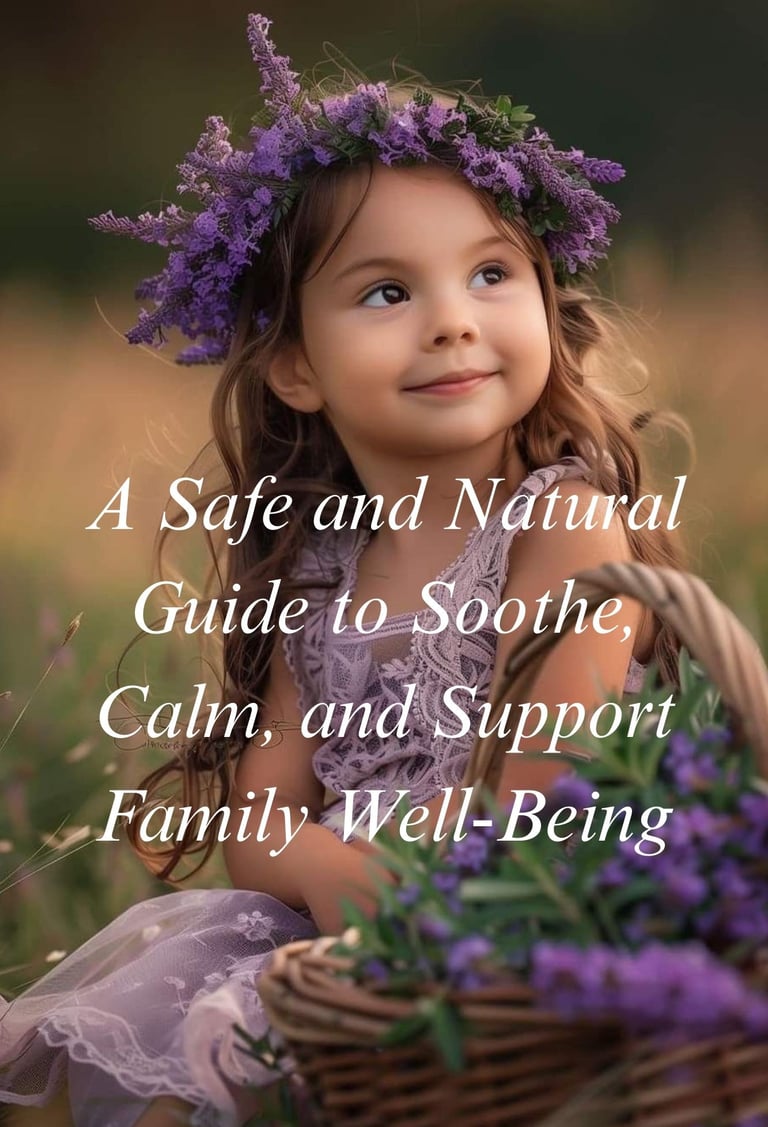Children’s Aromatherapy – A Safe and Natural Guide for Parents in 2025
Discover how to use aromatherapy safely with children in 2025. This complete guide reveals age-appropriate dilutions, safe oils, bedtime recipes, and natural remedies for colds and stress. Download the full ebook here ➝ Children’s Aromatherapy Guide
Why Children’s Aromatherapy Matters More Than Ever
Parents around the world are looking for gentle and natural alternatives to support their children’s sleep, concentration, and emotional balance. Aromatherapy, when used correctly, is not only safe but also effective in creating daily rituals that soothe and reassure kids.
Unlike random blog advice, this step-by-step guide is designed by experts to give parents clarity, confidence, and proven recipes
Get the complete guide today: Download now
Safe Practices – The Golden Rules for Children
Essential Safety Rules
Always dilute oils (0.5–1% before 6 years, max 2% after).
Perform a 24-hour skin patch test before first use.
Diffuse oils only in well-ventilated rooms, never overnight.
Avoid ingestion of essential oils in children.
Oils to Avoid
Certain oils are irritating or toxic for kids and must be avoided: peppermint, eucalyptus globulus, cinnamon, oregano, fennel, and anise
Gentle Essential Oils That Work Best for Kids
Among the safest and most effective oils are:
Lavender → sleep & relaxation
Mandarin / Sweet orange → emotional comfort
Roman chamomile → stress relief
Gentle eucalyptus (age 6+) → colds & coughs
These oils are scientifically studied and widely recommended in pediatric aromatherapy
Practical Recipes Parents Can Use Today
Peaceful Sleep (Diffusion Blend)
2 drops lavender
1 drop mandarin
1 drop Roman chamomile
Cold & Cough Relief (Roll-On, 6+ years)
10 ml carrier oil
2 drops gentle eucalyptus
1 drop lavender
1 drop mandarin
Focus & Calm (Diffusion Blend)
2 drops lavender
2 drops sweet mint
1 drop gentle rosemary
Find many more recipes inside the ebook ➝ Download the full guide
Creating Reassuring Family Rituals
Aromatherapy is not just about oils — it’s about emotional anchors. A few drops of lavender at bedtime, a roll-on during homework, or a scented craft on a rainy afternoon can turn ordinary moments into memories of safety and love This makes aromatherapy a true ally for parents seeking balance, serenity, and bonding time with their children.
Conclusion – Start Your Journey Today
Children’s aromatherapy is a safe, natural, and effective tool when used with care. It helps with sleep, colds, concentration, and emotional balance — all while creating rituals that strengthen family bonds.
Parents across the world are already using these methods to make their homes calmer and healthier.
Don’t wait: Get your copy of the complete Children’s Aromatherapy Guide here
FAQ – Children’s Aromatherapy in 2025
Is aromatherapy safe for children?
Yes, when used with strict safety rules. Oils must always be diluted, used in short diffusion times, and only gentle oils like lavender, chamomile, and mandarin should be chosen.
Which essential oils are best for kids?
The most recommended oils are lavender (for sleep), mandarin and sweet orange (for comfort), Roman chamomile (for stress relief), and gentle eucalyptus (for colds, age 6+).
Which essential oils should be avoided with children?
Avoid peppermint, eucalyptus globulus, cinnamon, oregano, fennel, and anise. These oils can be irritating, toxic, or even dangerous for young children.
Can essential oils help my child sleep better?
Yes. A gentle diffusion blend of lavender, chamomile, and mandarin for 15–20 minutes before bedtime helps calm the nervous system and improve sleep quality.
Can aromatherapy replace medicine?
No. Aromatherapy is a complementary tool that provides comfort and relief but does not replace medical care. Always consult a healthcare professional for serious conditions.
For more details, step-by-step recipes, and safe practices, download the complete guide here ➝ Children’s Aromatherapy Guide

